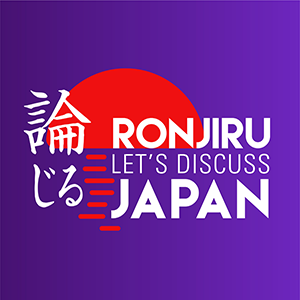
Is Cross-cultural Understanding Impossible?
What’s important is what kind of person each individual is striving to become, what actions they carry out, and what is in their heart as they do those actions.
(Translated/adapted from an original Japanese-language article written by JayTee in March 1999, published in a local municipal monthly magazine in Japan.)
Several days ago I was on an international flight. The man in the seat behind me was talking loudly with the person sitting beside him, so of course many of us could hear what he said. I was appalled.
During his long conversation, the man said: “We Japanese have ‘wa’ (harmony), so we can live together as a group, but foreigners are individualistic, speak too bluntly, and argue too much. So that’s why there’s so much crime in foreign countries. Plus, foreigners are lazy, take too much time off, and don’t work as hard as we Japanese.”
I have heard similar comments before. For example: “Japanese are an agricultural people and eat rice, while foreign countries are hunting-focused peoples that kill animals and eat meat. That’s why Japanese are peaceful and foreigners are violent.” Or: “Japanese are cleaner than foreigners.” Or: “Japanese value the family but foreigners don’t, which is why their divorce rate is so high.” And also: “Japanese are pure, but foreigners are lascivious.”
Well, what do you think about that? Although it’s only a tiny few people who have said such kind of ridiculous rot, they actually have said it directly to my face. So I shall opine on their unfounded opinions…
Japan is a country with lots of great customs and a multifaceted, fascinating culture. That’s why I love Japan, and I think Japanese people should be proud of the richness of their culture. However, human beings everywhere have a tendency to consider the culture, customs, values, opinions and behaviors of the country where they were born and raised as “right,” and the things they are used to in their own society as “normal.” In some cases, they even consider them as “the best.”
But people who put in the effort to try and understand other cultures can equip themselves with new tools by which they can more broadly evaluate their own society’s customs. And they realize that not everything about their own society is “best.” Every culture has things that should be celebrated and protected; and every culture also includes other things that need a good re-think. And that’s why any nationality of and by itself does not confer any special advantage over another. So making statements prefaced by “we Japanese…” or “them foreigners…” can so easily be based on misunderstanding, or clueless preconceptions.
In my opinion, what’s important is NOT the country or nationality of a person. That’s irrelevant, and trying to wield that as some sort of special authority only leads to resentment and conflict. What’s important is what kind of person each individual is striving to become, what actions they carry out, and what is in their heart as they do those actions.
What’s essential is that all of us polish ourselves into the best person individually that we can be. That’s the key to a successful global society. And if we succeed, there will be no more assertions of superiority based on preconceptions, or exercises in resentment based on feelings of inferiority. We can all interact as equal individuals and cooperate. Then we can get on with the business of making the world a better place.
〆
